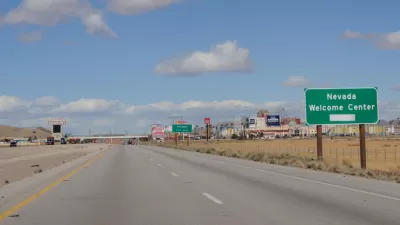SB 35 (Wiener) and AB 199 (Chu) make it more costly to build housing by requiring prevailing wages where applicable, pleasing construction unions but making affordable housing less affordable, opines CALmatters political columnist, Dan Walters.

Housing costs in the Golden State are staggering. According to Gov. Jerry Brown's budget summary – 2017-18 [pdf], the average, per-unit construction costs range from "$591,000 in San Francisco to $207,000 in Kings and Tulare counties," writes Dan Walters.
While the Capitol’s politicians are beating the drums for either new taxes, such as a proposed levy on real estate transactions [SB 2], or bonds to address the housing issue [SB 3], both would be tokenism. There’s no way the state can supply the immense sums needed [to build affordable housing for California’s 1.7 million rent burdened low-income households, such as the $250 billion cited by Mac Taylor [the Legislature’s budget analyst in his Feb. 9, 2016 report: "Perspectives on Helping Low-Income Californians Afford Housing" (pdf), also posted here.]
Therefore, the primary focus of a housing package should be on reducing red tape, particularly at the local level, to make it easier and less costly for both private and non-profit investors. [Walters had earlier cited per-unit construction costs for non-profit developer Mercy Housing in San Francisco and Roseville, a suburb of Sacramento].
What's causing California's Housing Crisis?
While Senate Bill 35 by Sen. Scott Wiener, D-San Francisco, would streamline the approval process, including the imposition of parking standards by cities, it also requires the payment of prevailing rate of wages, thus increasing housing "costs by virtually mandating the use of more expensive union construction labor – even treating private projects as if they were public works," writes Walters.
Walters ignores the reason for the inclusion of prevailing wages in the bill, which essentially takes-up what Gov. Brown attempted unsuccessfully to do last year because it failed to build a political coalition to press the streamlining need.
There's no doubt that housing costs are high in California, and requiring prevailing wages certainly doesn't help matters. But any housing advocate will tell you that the refusal by city governments to allow housing due to local political pressures, or downsize proposals which attempted to provide more units, is the root of the state's housing crisis.
The Legislative Analyst's Office investigated this issue in their March 2015 report, "California’s High Housing Costs: Causes and Consequences," and a February 2016 report cited above and posted here.
Finally, Assembly Bill 199 by Assemblyman Kansen Chu, D-Milpitas, "would declare any housing in a local redevelopment area, regardless of its financing, to be public works and also subject to the 'prevailing wage' rule that effectively mandates unionized labor," writes Walters. According to the legislative analysis prepared for the July 17 Senate Appropriations Committee, the bill "would clarify that the requirements of prevailing wage extend to successor agencies of redevelopment agencies."
FULL STORY: Building California housing is expensive, and two bills would make it even costlier

Planetizen Federal Action Tracker
A weekly monitor of how Trump’s orders and actions are impacting planners and planning in America.

Congressman Proposes Bill to Rename DC Metro “Trump Train”
The Make Autorail Great Again Act would withhold federal funding to the system until the Washington Metropolitan Area Transit Authority (WMATA), rebrands as the Washington Metropolitan Authority for Greater Access (WMAGA).

The Simple Legislative Tool Transforming Vacant Downtowns
In California, Michigan and Georgia, an easy win is bringing dollars — and delight — back to city centers.

The States Losing Rural Delivery Rooms at an Alarming Pace
In some states, as few as 9% of rural hospitals still deliver babies. As a result, rising pre-term births, no adequate pre-term care and "harrowing" close calls are a growing reality.

The Small South Asian Republic Going all in on EVs
Thanks to one simple policy change less than five years ago, 65% of new cars in this Himalayan country are now electric.

DC Backpedals on Bike Lane Protection, Swaps Barriers for Paint
Citing aesthetic concerns, the city is removing the concrete barriers and flexposts that once separated Arizona Avenue cyclists from motor vehicles.
Urban Design for Planners 1: Software Tools
This six-course series explores essential urban design concepts using open source software and equips planners with the tools they need to participate fully in the urban design process.
Planning for Universal Design
Learn the tools for implementing Universal Design in planning regulations.
Smith Gee Studio
City of Charlotte
City of Camden Redevelopment Agency
City of Astoria
Transportation Research & Education Center (TREC) at Portland State University
US High Speed Rail Association
City of Camden Redevelopment Agency
Municipality of Princeton (NJ)





























